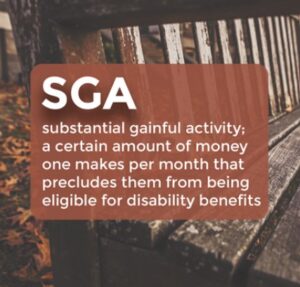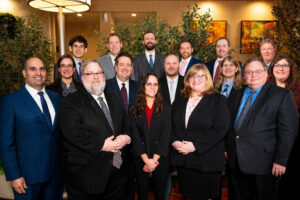DENIED. No one likes being denied. Whether it’s for a date or when applying for disability benefits, being told “no” is frustrating and yet a widespread occurrence. In 2022, about one in three processed disability applications were approved.
Leading Reasons That Disability Claims Are Denied

While each claim for SSD benefits is different, there are some common reasons claims get denied. It’s important to remember that just because a claim is denied, that doesn’t mean a person did not qualify for benefits. The Social Security Administration denies many legitimate claims, and here are some of the most common reasons why:

- Lack of medical evidence. An applicant must have strong medical evidence documenting his disability and how this prevents him from working. We must also remember that disabilities affect different people, well, differently. For example, Mary struggles with depression but maintains employment with a regimen of medication and therapy. Sarah also struggles with depression. However, even with pharmacological intervention and therapy, she is unable to get out of bed, much less maintain employment. Many applications are denied for lack of sufficient medical documentation of the disability, so it is imperative you communicate your disability and treatment(s) with your medical provider and that all of this is documented.
- Prior denials. One of the biggest mistakes made when an initial claim is denied is to file a new application. Your attorney will review your case to decide whether an appeal is the correct next step or if you really should file a new application. Be sure to discuss this with your legal advisor before moving forward with a new application as many times this increases the likelihood that your application will not be approved.
- Too much earnings. SSD benefits are for people who are unable to work. If an applicant is able to work, continues to work and earns too much money, also know as earning above SGA, this will make them ineligible for benefits. Individuals receiving SSD benefits are only able to earn a limited amount of wages and continue receiving SSD benefits. Being able to work and earn wages indicates that someone is not too disabled to work.
- Failure to follow treatment advice. SSD applications are typically denied if the applicant does not follow his physician’s advice or if there are lapses in medical care. By not adhering to a treatment plan or not receiving medical care, the SSA may argue that the applicant is not disabled because they are not receiving treatment.
- Failure to cooperate. Ignoring requests for additional information, missing appointments or general failure to cooperate and comply with the SSA’s requests may cause the application to be denied.
WHAT CAN I DO TO AVOID BEING DENIED SSD?
See the five bullet points listed above? Don’t make those mistakes, and that will help increase the likelihood that your application will not be denied. A second way, and probably the easiest, most successful way to not be denied, is to retain an experienced disability attorney. Your legal representation can help you file your application and gather and supply the needed documentation for your case. Then, if required, they will provide representation should you go to trial.
 Since opening its doors in 2001, Parmele Law Firm has handled over 55,000 disability cases. Our attorneys have 135+ years of combined disability experience, making PLF a leading experienced law firm. If you have questions or want to begin a claim, contact Parmele Law Firm at 866-889-2560 to schedule your no-cost consultation.
Since opening its doors in 2001, Parmele Law Firm has handled over 55,000 disability cases. Our attorneys have 135+ years of combined disability experience, making PLF a leading experienced law firm. If you have questions or want to begin a claim, contact Parmele Law Firm at 866-889-2560 to schedule your no-cost consultation.
Parmele Law Firm. Guiding you with integrity, competency, and experience.
